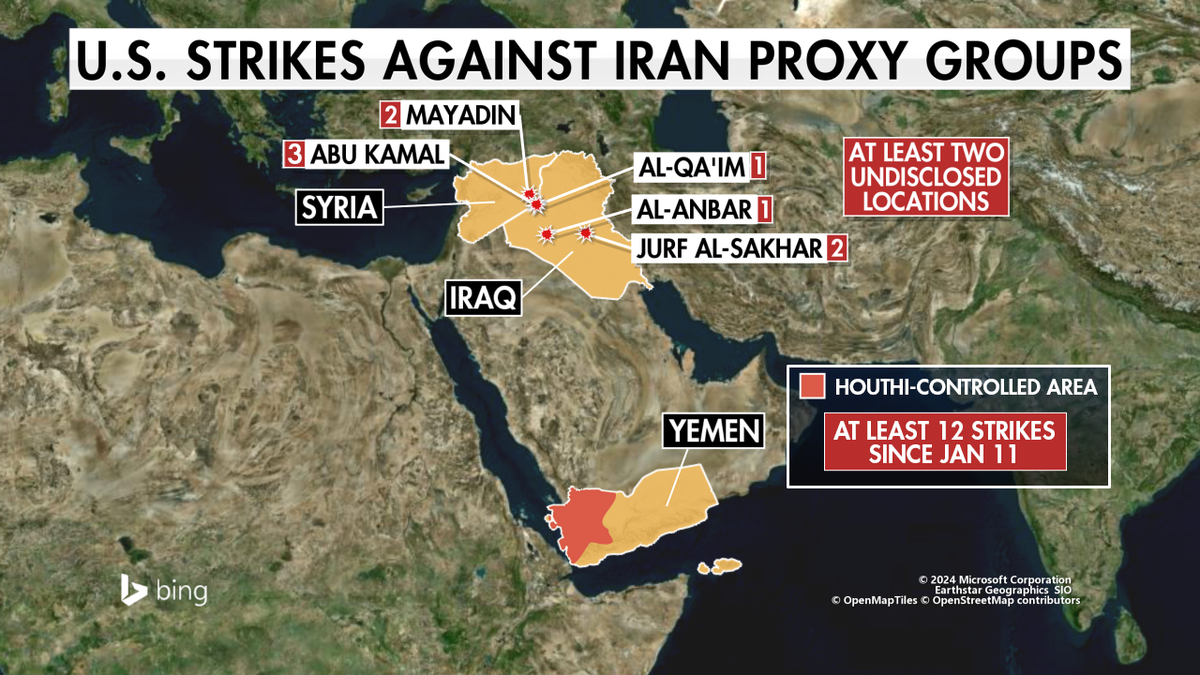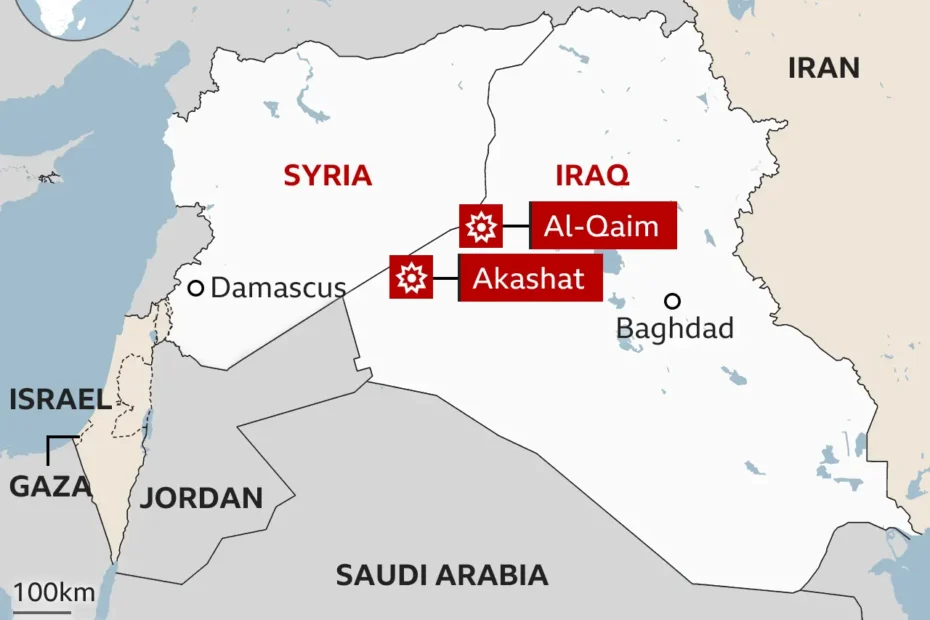Have you ever wondered why the U.S. Strikes on Iran make headlines and stir global debates?
The answer is more complex than you might think. As tensions rise and news outlets buzz with updates, understanding the reasons behind these strikes becomes crucial. You might feel overwhelmed by the political jargon, but don’t worry—we’re here to break it down for you.
Discover the strategic, historical, and political factors that drive these actions. By the end of this article, you’ll have a clear grasp of why these strikes happen and what they mean for you and the world. Get ready to uncover the truth behind the headlines.

Credit: www.foxnews.com
Historical Context
The relationship between the US and Iran has been complex for decades. Historical events have shaped the dynamics between these two nations. Understanding this history is key to comprehending current tensions.
Us-iran Relations In The 20th Century
In the early 20th century, Iran was seen as a strategic ally. The US supported Iran’s modernization efforts. The 1953 CIA-backed coup marked a turning point. This event overthrew Iran’s elected Prime Minister, Mohammad Mossadegh. The coup led to the reinstatement of the Shah. The Shah’s rule was marked by close US ties.
The Iranian Revolution And Its Impact
The 1979 Iranian Revolution changed everything. The Shah was overthrown, and Iran became an Islamic Republic. This shift strained US-Iran relations significantly. Hostility grew after the US embassy hostage crisis. For 444 days, 52 American diplomats were held captive. This event soured diplomatic ties for years to come.
Us Sanctions And Military Actions
The US has imposed numerous sanctions on Iran. These sanctions aim to curb Iran’s nuclear ambitions. Military actions have also been part of US strategy. Strikes are often responses to perceived threats. They aim to deter Iran from aggressive moves.
The Role Of Nuclear Ambitions
Nuclear ambitions are a core issue in US-Iran relations. The US views Iran’s nuclear program as a global threat. Efforts to limit Iran’s nuclear capabilities have faced challenges. Despite negotiations, tensions remain high.
Influence Of Regional Conflicts
Regional conflicts have added complexity to US-Iran relations. Iran’s involvement in Middle Eastern conflicts concerns the US. Proxy wars and alliances fuel tensions further. These conflicts influence the decision to strike.
Strategic Interests
The US strikes on Iran often stem from strategic interests. Understanding these interests helps in analyzing the global dynamics. Oil and energy resources, along with regional influence, play key roles. These factors drive the decision-making process.
Oil And Energy Resources
Iran holds vast oil reserves. The country is a major energy player. Control over these resources impacts global oil prices. The US aims to secure stable energy supplies. Ensuring access to oil is crucial for economic stability. Energy is a cornerstone of national security.
Disruptions in oil flow can affect economies worldwide. The US seeks to prevent such disruptions. Strikes target infrastructure to maintain oil flow. This ensures uninterrupted access to energy. Energy independence remains a strategic goal.
Regional Influence
Iran’s location is strategically important. The country influences regional politics. Its alliances shape power dynamics in the Middle East. The US aims to counterbalance Iran’s influence. Maintaining regional stability is a priority.
Iran supports various groups in the region. This support challenges US interests. The US uses strikes to weaken such alliances. Reducing Iran’s influence strengthens US positions. Regional stability impacts global peace.
Strikes serve as a message to Iran. They demonstrate US commitment to regional goals. Ensuring influence in the Middle East is strategic. The US seeks to promote its interests globally.
Military Dynamics
Military dynamics play a crucial role in US-Iran relations. The region’s stability often hinges on military actions. Understanding these dynamics provides insights into recent US strikes on Iran. Let’s explore the military aspects influencing this situation.
Us Military Presence
The US maintains a significant military presence in the Middle East. Bases are strategically located in nearby countries. This presence aims to deter regional threats. The US military is equipped with advanced technology. Troops are trained for rapid deployment and strategic operations.
Iran’s Military Capabilities
Iran possesses a robust military force. Its arsenal includes ballistic missiles and naval assets. Iran’s Revolutionary Guard plays a pivotal role. It holds influence over regional militias. Iran’s military strategy focuses on asymmetric warfare. This includes leveraging proxies and cyber capabilities.

Credit: www.ft.com
Nuclear Concerns
The US has struck Iran due to nuclear concerns. These concerns stem from Iran’s nuclear ambitions and its potential threat to global peace. The complexity of nuclear negotiations adds to this tension. Understanding these issues is crucial for grasping the broader geopolitical dynamics.
Iran’s Nuclear Program
Iran’s nuclear program has been a point of contention. Initiated decades ago, it has grown despite international scrutiny. The program claims peaceful purposes like energy production. Yet, many fear it masks weapon development. The potential for nuclear weapons raises alarms globally.
Iran insists on its right to nuclear technology. This assertion leads to suspicion among other nations. The lack of transparency fuels fears of militarization. As a result, tensions between Iran and other countries intensify.
International Agreements
International agreements aim to curb Iran’s nuclear ambitions. The most notable is the Joint Comprehensive Plan of Action (JCPOA). This deal, crafted in 2015, involved Iran and world powers. It sought to limit Iran’s nuclear capabilities in exchange for sanctions relief.
Despite its goals, the JCPOA faced challenges. The US withdrew from the deal in 2018, citing non-compliance. This withdrawal reignited tensions and led to increased sanctions. Efforts to renegotiate the agreement continue, yet obstacles remain.
International agreements play a critical role in this issue. They reflect the global community’s attempts to ensure peace. The ongoing negotiations highlight the complexity of nuclear diplomacy.
Economic Sanctions
Economic sanctions are tools used by countries to exert pressure. The US has applied these sanctions on Iran. These measures aim to limit Iran’s economic activities. This affects their global trade and financial transactions.
Impact On Iran
Sanctions have hit Iran’s economy hard. The country faces inflation and unemployment. Many businesses struggle due to restrictions on trade. Access to international markets is limited. This reduces Iran’s ability to earn foreign currency. Importing essential goods becomes costly and difficult.
Global Economic Implications
Sanctions on Iran affect global markets. Oil prices can fluctuate due to reduced supply. Countries dependent on Iranian oil must seek alternatives. This impacts their economies and trade relations. Global businesses face risks when dealing with Iranian entities. They must comply with sanctions or face penalties.

Credit: www.france24.com
Diplomatic Relations
The diplomatic relations between the US and Iran have been complex. These relations often shift due to political and military actions. Understanding these dynamics is crucial to grasping why tensions escalate. International diplomacy plays a vital role here. It influences decisions and potential conflicts.
Us-iran Relations
The US and Iran have a long history of tension. Conflicts often arise from nuclear programs and regional influence. Sanctions and negotiations are common tools used by the US. These aim to curb Iran’s nuclear ambitions. Trust between the two nations remains low. This often leads to heightened military readiness.
Political changes in the US affect relations with Iran. New administrations may alter policies and strategies. This can either ease tensions or increase them. The situation is often unpredictable. Diplomatic efforts continue despite challenges.
Role Of Allies
Allies play a significant role in US-Iran relations. Countries like Israel and Saudi Arabia influence US policies. They often push for a firm stance against Iran. These nations feel threatened by Iran’s actions. Their involvement adds layers to the diplomatic puzzle.
European nations often seek a balanced approach. They focus on dialogue and negotiation. Their goal is to prevent military escalation. This diverse array of allies impacts US strategies. Each ally brings its own interests and concerns.
Public Opinion
The US strikes on Iran often ignite diverse opinions worldwide. Public sentiment plays a significant role in shaping policies and decisions. Understanding these opinions can provide insights into the broader implications of such actions. It’s essential to examine how people in both nations perceive these events.
Perception In The Us
In the US, opinions on strikes against Iran vary widely. Some citizens feel they are necessary for national security. Others believe diplomatic solutions should be prioritized. The media also influences public perception. Reports often highlight potential threats from Iran. This can sway public opinion towards supporting military actions.
Political affiliations often affect views on foreign policy. Republicans may support a stronger military stance. Democrats might advocate for peaceful negotiations. These divisions reflect broader ideological differences within the country.
Iranian Public Sentiment
In Iran, public sentiment towards US strikes is generally negative. Many view them as acts of aggression. This perception strengthens nationalist feelings among Iranians. It fosters a sense of unity against perceived external threats.
Iran’s government often uses these events to rally public support. They portray the US as a hostile force. This narrative can deepen anti-American sentiments among the populace. Understanding these perspectives is crucial for assessing the long-term impact of such strikes.
Future Implications
The recent US strikes on Iran have sparked global concern. The world watches closely. Actions like these carry weighty implications. The future remains uncertain. Various outcomes are possible. Understanding these can prepare us for what’s next.
Potential For Escalation
The risk of conflict escalation is real. Military actions often lead to retaliation. Iran may respond forcefully. This could ignite a larger conflict. Regional stability hangs in the balance. Neighboring countries may get involved. Global alliances could shift. Tensions might rise worldwide. Economic impacts could follow. Oil prices may increase. Trade routes could be affected. The global economy might feel the strain.
Paths To Resolution
Diplomatic talks offer hope. Dialogue can ease tensions. Negotiations require patience and compromise. Both sides need to engage sincerely. International mediators can play a role. The UN could facilitate talks. Shared interests might foster cooperation. Peace talks can prevent further conflict. Confidence-building measures are essential. Open communication channels are crucial. Building trust takes time. Transparency can lead to understanding. A peaceful resolution benefits all.
Frequently Asked Questions
Why Did The Us Strike Iran?
The US struck Iran due to security threats. They aimed to protect national interests and ensure regional stability.
What Are The Consequences Of Us Strikes On Iran?
Tension in the Middle East increases. Economic impacts and geopolitical conflicts may arise, affecting global relations.
How Does The Us Justify Strikes On Iran?
The US cites self-defense and national security. They argue it deters threats and maintains regional peace.
What Impact Do Us Strikes Have On Global Politics?
US strikes influence international relations. They can strain alliances and impact diplomatic negotiations worldwide.
Is There A Historical Context To Us-iran Tensions?
Yes, tensions date back decades. Events like the 1979 hostage crisis and nuclear issues play significant roles.
Conclusion
The US strikes on Iran sparked global attention. Many wonder about the reasons behind these actions. Tensions between the nations have deep roots. These strikes reflect complex political and security issues. Both sides have historical grievances. Solutions require diplomacy and patience.
Dialogue remains crucial for peaceful resolutions. Understanding these events helps grasp international dynamics. The future depends on wise decisions by leaders. Global peace is always the ultimate goal. Readers should stay informed and aware. Keeping up with news provides clarity and insight.
